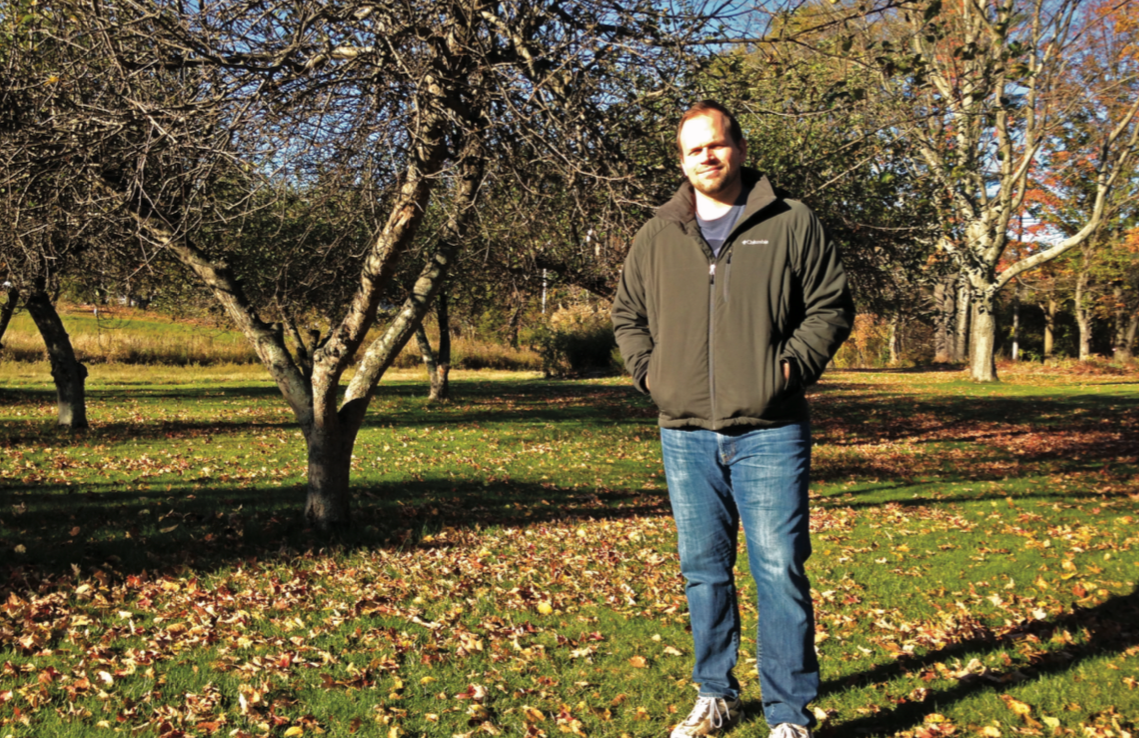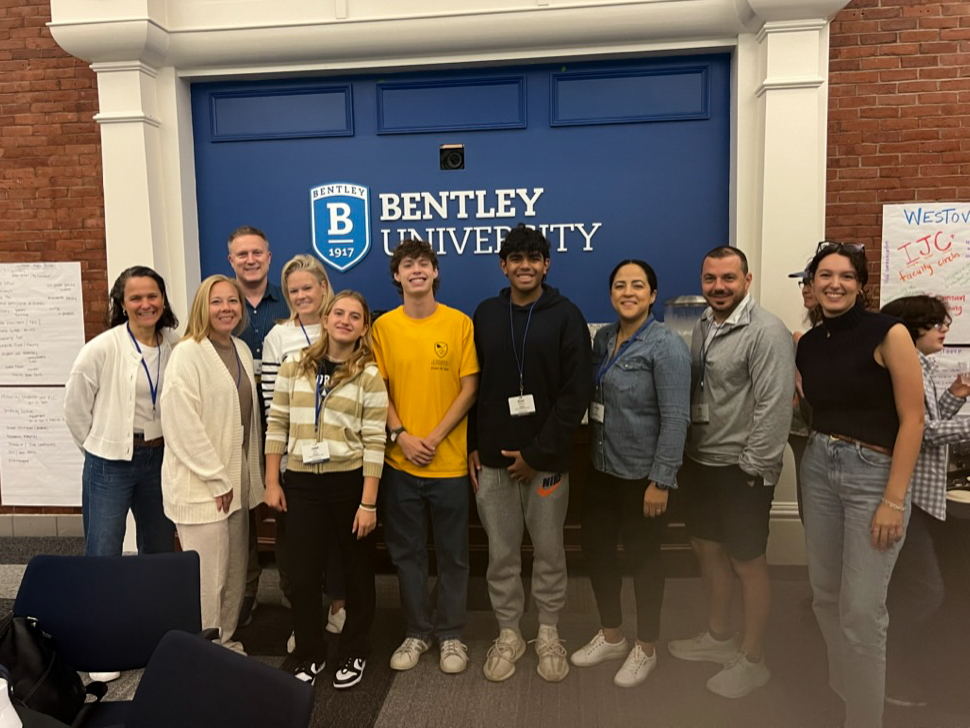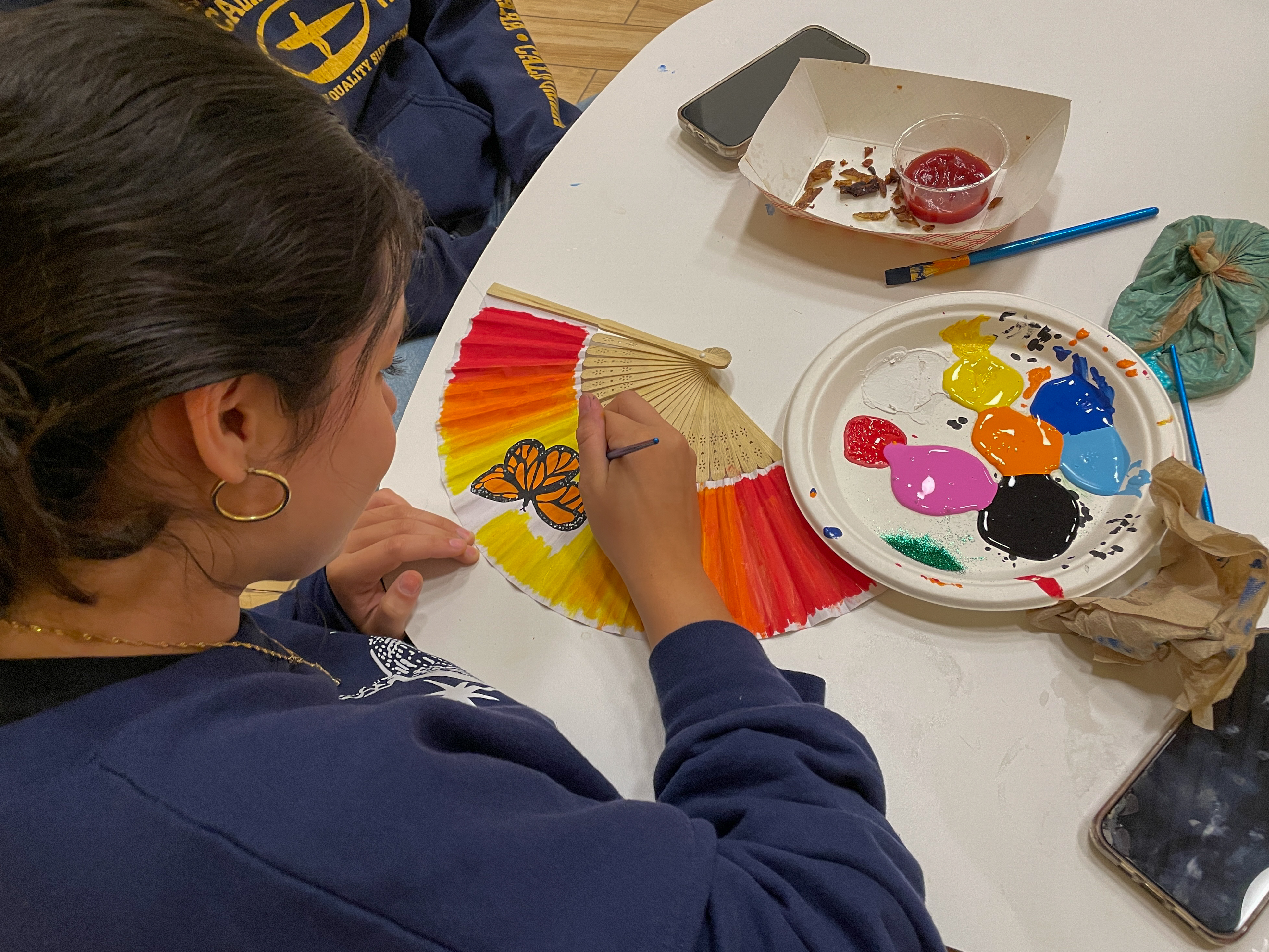
The 140-acre Paddock Farm produces a lush harvest of apples each year, and Mr. Erik Freeman hopes to maintain the orchards and flowerbeds.
Imagine Beethoven’s “Pastoral” Symphony come to life: the colorful opening translated into rustling autumn leaves, the vivid interplay between strings and woodwinds morphed into larks soaring over a bounty of harvest, and there you have it — Paddock Farm, an area near the Kohler Environmental Center (KEC) with a faculty home and an extensive array of trees and plants.
Humanities teacher Mr. Erik Freeman is now the farm’s proud resident. He is most excited to work and live there with his wife and two daughters, Chloe and Nora. The challenges of handling a 140-acre farm vary from balancing an equal amount of time and effort to teaching and farming, to wild coyotes snatching away tomatoes and apples Mr. Freeman harvested. He hopes to tackle these issues by involving more students from the KEC or sports teams to give him a hand on Paddock Farm.
As a history aficionado, he dug up old pictures from the Archives to see how Paddock Farm looked like when it was founded back in the 1940s. He noted that the structure remains the same, and the long creek that runs behind the KEC used to be a favorite fishing spot for locals. Intriguing tokens of the past, including Army Depot equipment, can be found among roots of vegetables beneath the fields. He also mentioned that Choate used to treat Paddock Farm as a junkyard, so it is never surprising to find chunks of a broken toilet bowl or pipes scattered across the land. Mr. Joe Scanio, a science teacher at Choate, also explained that Paddock Farm used to be an active farm where sheep and cattle would roam over the plains. “Currently, only some of the open areas around Paddock Farm are actively farmed, which is now managed by the Freemans. Paddock Farm is a great example of what used to be New England. The landscape, the barns and the fields would all be a second growth forest if no one like Mr. Freeman were taking care of it,” Mr Scanio stated.
“To me, Paddock Farm is such a wonderful place for historians. One day when you’re merely fixing the flowerbeds, you might stumble upon some important historical artifact, and that is pretty cool.” Mr. Freeman commented.
Mr. Freeman believes Paddock Farm is a land of many opportunities. “It’s a place where anyone can come up to. A lot of biology classes come here to observe the wildlife in the shared forest with the KEC, and some students from Choate even bring their cameras to shoot pictures around the area,” he said.
Mr. Ian Morris, a retired teacher who taught biology and marine science at Choate, lived at Paddock Farm for 26 years. He used to pick apples from the orchard to make all sorts of desserts with the fresh produce and sell them to raise money or simply reward his students with a tantalizing treat. Mr. Freeman hopes to follow Mr. Morris’s footsteps to continue the legacy of Paddock Farm. “The main expectation for me is to keep up the flowerbeds and the orchards. Right now there are no distinct activities for the student body but I am hoping that either people from the KEC or sports team that I coach will help me prune the apple trees up there.”
Growing up in Orem, Utah, Mr. Freeman has always been in touch with nature. Paddock Farm was the perfect chance for him to reconnect with the land and sky he knows so well. “I wanted to pursue the chance of working at Paddock Farm because it’s such an inspiring place. I like the open space, the breathtaking landscape, and the fact that my children can play in the forest as their backyard,” he said. “As Mr. Morris used to say, ‘It’s like a little slice of Vermont in Connecticut.’ It just came to me as a great place for my family to live in.” Mr. Scanio also sees Paddock Farm as a place of tranquility.
With the hectic lifestyle of a Choate teacher, it is comforting for Mr. Freeman to know that he will always find respite and a sense of freedom among the farm. “Up there on the farm, there are no neighbors, and I am completely away from the hustle and bustle. You can really feel the beauty of nature emanating at your fingertips. It definitely provides me with tranquility every day,” said Mr. Freeman.




